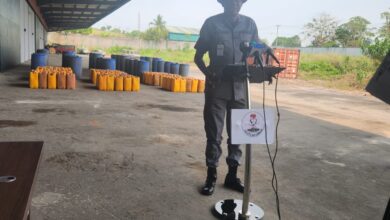
By Edu Abade
Parties to the United Nations Convention on Biological Diversity (CBD) are currently discussing controversial technologies in Nairobi. One such technology is engineered gene drives. It is a form of extreme genetic engineering, which is designed to spread its modification throughout an entire species and persist in the environment.
Participants at a virtual meeting in Nairobi, Kenya and attended by select journalists from Nigeria and other African countries, said: “In Africa, gene drive projects, largely funded by the Bill and Melinda Gates Foundation (BMGF), are already underway in several countries including Burkina Faso, Ghana, Uganda and most recently in Tanzania, aiming to eradicate malaria on the continent.
“However, these techno-fixes do not address the root causes of health challenges on the continent and pose novel risks. Furthermore, these projects are proceeding despite the absence of adequate local capacity to assess and regulate them effectively.”
While gene drive lobbyists, at the 26th meeting of the Subsidiary Body on Scientific, Technical and Technological Advice (SBSTTA) to the CBD in Nairobi, Kenya use the possibility of malaria eradication to promote the technology, civil society organizations have found that most patents are being filed for agricultural use.
During the Webinar, which was anchored by Sabrina Masinjila of the African Centre for Biodiversity (ACB) and Barbara Ntambirweki of the ETC Group of Uganda, it was revealed that patents reference hundreds of agricultural uses, such as for herbicides, pesticides and so called “pests” for the gene drive experiments.
Researchers found that agribusiness firms such as Monsanto-Bayer and Cibus Bioscience were also engaging with gene drive development. At this year’s SBSTTA meeting, member states are examining reports from expert groups, highlighting numerous risks and unanswered questions about gene drives. Discussions are particularly focused on the contrasting potential benefits and risks these technologies might pose.
Sub-Saharan countries are advocating for enhanced capacity building, technology transfer, and some seem to be willing to adopt gene drives. African Civil Society Organizations (CSOs) are calling for ongoing evaluations and a robust, updated regulatory framework to manage these technologies.
A post-seminar statement signed and issued by Masinjila and Ntambirweki stated: “They endorse a precautionary approach and support the establishment of an international expert group to review new technologies before they are introduced to the environment.
“Decisions made at SBSTTA will be taken to the Conference of the Parties to the CBD in October 2024 to be further discussed, where heads of states will decide on how to proceed with these technologies.”










